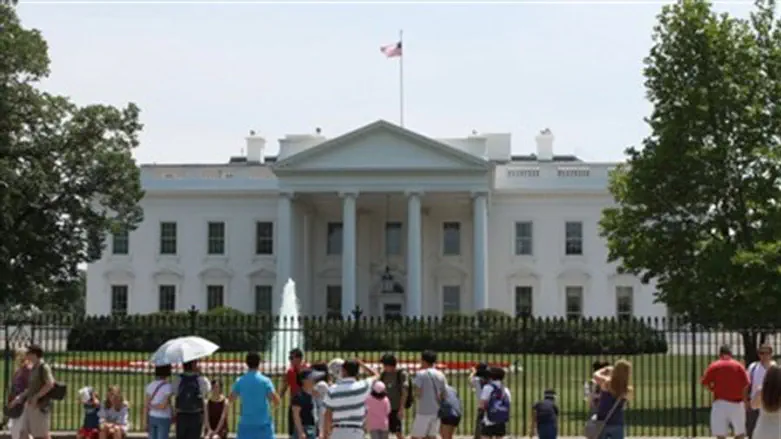
Dr. Medoff is founding director of The David S. Wyman Institute for Holocaust Studies, and author or editor of 17 books about Jewish history and the Holocaust.
The upcoming 75th anniversary of Operation Torch, the Allies’ liberation of North Africa, has triggered discussions about the restrictions that the Roosevelt administration imposed on Jews living in that region, with one prominent scholar surprisingly coming to the defense of FDR’s harsh action. Who would have thought that in this day and age, equal rights for Jews would still be considered debatable?
Canadian historian Michael Marrus, writing in the online journal Mosaic on October 23, suggested that President Franklin D. Roosevelt was justified in temporarily denying equal rights to Jews in newly-liberated Algeria, Morocco, and elsewhere, because if the U.S. granted the Jews equality, it might cause “an Arab uprising” against the Allies. According to Marrus, the argument that such a danger was exaggerated might be plausible, but only “in hindsight.”
He’s mistaken. It wasn’t just in hindsight; American Jewish leaders confronted that “Arab uprising” warning at the time.
Consider, for example, the plea sent to First Lady Eleanor Roosevelt by the era’s foremost Jewish leader, Rabbi Stephen S. Wise, just a few months before the liberation of North Africa. Concerning Allied fears that sympathy for the Jews would cause “repercussions among the Arabs,” Wise wrote: “Is it too much to say that the sacrifice of friends in the interests of appeasing the unfriendly has repeatedly proven to be vain? The [pro-Nazi] rebellion in Iraq, the presence of the [Palestinian Arab] Mufti in Berlin and Rome, the failure of Egypt to live up to her treaty of alliance (thousands of Palestine Jews, but no Arab-Egyptian soldiers, have been defending Egyptian soil against invasion) indicate that this policy has failed in the Near East as it has failed everywhere else.”

As a result, U.S. Jewish organizations did something in early 1943 that they had almost never done before: they publicly criticized the Roosevelt administration... As a result, U.S. Jewish organizations did something in early 1943 that they had almost never done before: they publicly criticized the Roosevelt administration. Wise’s American Jewish Congress and World Jewish Congress issued a joint statement charging that “the anti-Jewish legacy of the Nazis remains intact in North Africa.”
As a result, U.S. Jewish organizations did something in early 1943 that they had almost never done before: they publicly criticized the Roosevelt administration. Wise’s American Jewish Congress and World Jewish Congress issued a joint statement charging that “the anti-Jewish legacy of the Nazis remains intact in North Africa.”
A delegation of Jewish leaders then went to the State Department to personally make the case for equal rights in North Africa before Undersecretary of State Sumner Welles. Jewish organizations also organized a group of prominent French exiles in the United States to present the State Department with a petition on the subject. Supreme Court Justice Felix Frankfurter and French Jewish leader Baron Edouard de Rothschild also spoke out.
At first, the Roosevelt administration dug in its heels, trotting out the old bogeyman about a potential Arab uprising. But in response to public protests, the administration eventually instructed the local authorities in North Africa to restore equal rights for Jews and shut down the slave labor camps where thousands of Jews had been incarcerated under the old pro-Nazi Vichy regime. And lo and behold—the granting of equality to the Jews did not result in any “Arab uprising” at all.
Unfortunately, Michael Marrus’s rationalization of FDR’s North Africa policy is just the latest in a series of instances in which authors have taken extreme positions in defense of Roosevelt’s record on Jewish matters.
Military archivist James Kitchens has defended the U.S. refusal to bomb Auschwitz, on the grounds that such an air strike “might have been illegal under international law” because prisoners could have been harmed. Pro-FDR author Robert Rosen contends that Roosevelt was right to say almost nothing in public about the persecution of European Jewry, because “speaking out…may have increased Hitler’s determination to kill more Jews.”
Historians Richard Breitman and Allan J. Lichtman have written that FDR’s anti-Jewish quotas in North Africa were an effort “to provide opportunities for Jews, without unduly antagonizing Moslems.” Breitman and Lichtman have characterized Roosevelt’s support for quotas on Jews entering Harvard as an attempt to ensure that “each group should have its share of places and no group should gain undue representation.” They even have claimed that FDR’s anti-Semitic remarks to Josef Stalin and other Soviet officials in private (in 1942 and 1945) were helpful as “ice-breakers.”
The fears that have been cited to justify FDR’s policies on these issues are not just misplaced in retrospect. Those policies actually were tried at the time, and the fears proved groundless. Equal rights for Jews were restored in North Africa—and no Arab uprising resulted. The U.S. did bomb German oil factories adjacent to Auschwitz, inadvertently harming some slave laborers, but nobody prosecuted the pilots as war criminals. President Roosevelt’s anti-Jewish “ice-breakers” to Soviet officials did not result in any Soviet concessions. Nor did FDR’s reluctance to speak out about European Jewry calm Hitler down.
The historical record speaks for itself. And it’s much more revealing than the speculation in which some extreme defenders of President Roosevelt prefer to indulge.